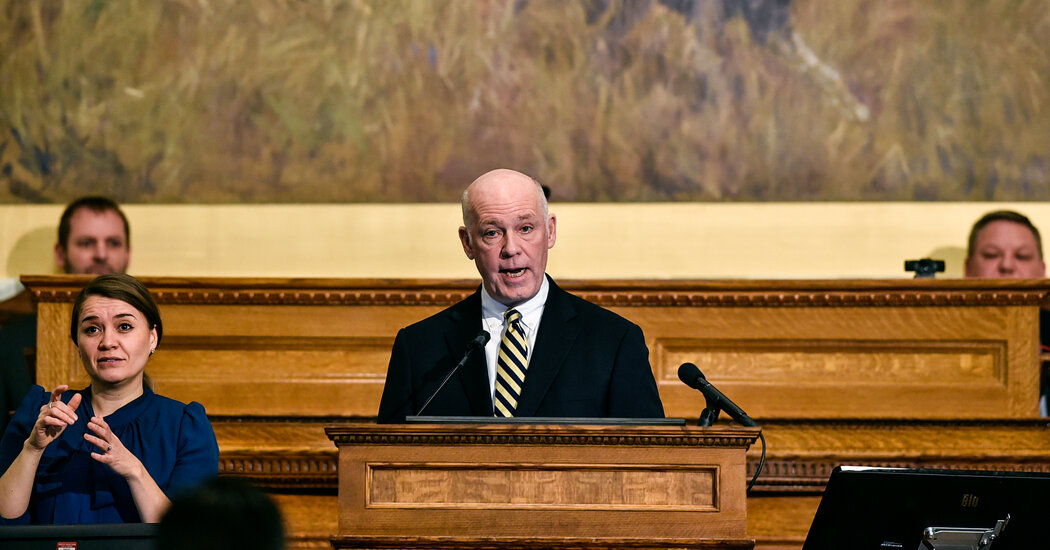Montana Governor Greg Gianforte signed a bill on Wednesday to ban TikTok from operating within the state, the most extreme ban on the app in the country and one that will almost certainly be challenged in court. The ban will take effect on January 1.
“Today, Montana is taking the most decisive action of any state to protect Montana’s private data and sensitive personal information from collection by the Chinese Communist Party,” Mr. Gianforte, a Republican, said in a press release.
The Montana legislature introduced the bill in February, sparking months of debate. The proposal, which would affect everyday users of the popular short video app, significantly increased the national rush to ban TikTok on government devices over concerns about the company’s ownership by Chinese company ByteDance. The battle over the bill offered a glimpse of what the United States could face nationally if lawmakers or the White House try to ban TikTok nationwide, which launched in recent months.
TikTok, which says it has 7,000 employees in the United States, has been fighting back in the state for months. It has run ads featuring Montana small businesses using TikTok and sending pre-written emails to users so they can contact Mr. Gianforte to oppose the bill.
The law prohibits mobile app stores, such as those owned by Apple and Google, from offering TikTok within the state. A trade group funded by Apple and Google has said in recent months that it is impossible for the companies to prevent access to TikTok in a single state.
“Governor Gianforte signed a bill that violates the First Amendment rights of the people of Montana by unlawfully banning TikTok, a platform that empowers hundreds of thousands of people across the state,” Brooke Oberwetter, a spokeswoman for TikTok, said in a statement. a statement. on Wednesday. Montanans, she added, can continue to use the app “as we continue to work to defend the rights of our users inside and outside Montana.”
Under the law, TikTok could face fines if it continues to operate in the state, just like Apple and Google if they allow people to download the app.
Apple and Google did not immediately return requests for comment.
The battle in Montana erupted during a period of intense national scrutiny over TikTok, which has more than 150 million US users. Lawmakers and intelligence officials have said TikTok, because of its ownership, could put sensitive user data in the hands of the Chinese government, pointing to laws that allow Beijing to secretly demand data from Chinese companies and citizens for intelligence gathering purposes.
They have also expressed concern that the app, which is particularly popular with those in their teens and twenties, could be used to spread propaganda. Congress grilled Shou Chew, TikTok’s CEO, for about five hours during a March hearing that focused largely on China’s ownership of the app.
TikTok says it has never been asked to provide US user data to the Chinese government, nor has it provided it. The company has proposed a detailed plan to operate in the United States, which it says should address national security concerns and fears of misinformation, but the plan has not yet been approved by the Biden administration, leaving TikTok and its future remain in limbo.
Free speech groups reacted quickly to the ban in Montana. The American Civil Liberties Union said on Wednesday that the legislation “contradicts the First Amendment.”
“The government cannot totally ban a communication platform like TikTok unless it is necessary to prevent very serious, immediate damage to national security,” the group said in a statement. “But there is no public evidence of harm that would meet the high bar set by the U.S. and Montana Constitutions, and a total ban would not be the only option to address such harm if it existed.”
Montana’s bill says the ban will be void if TikTok is acquired by or sold to a company not incorporated in a country “designated as a foreign adversary.”
David McCabe reporting contributed.

